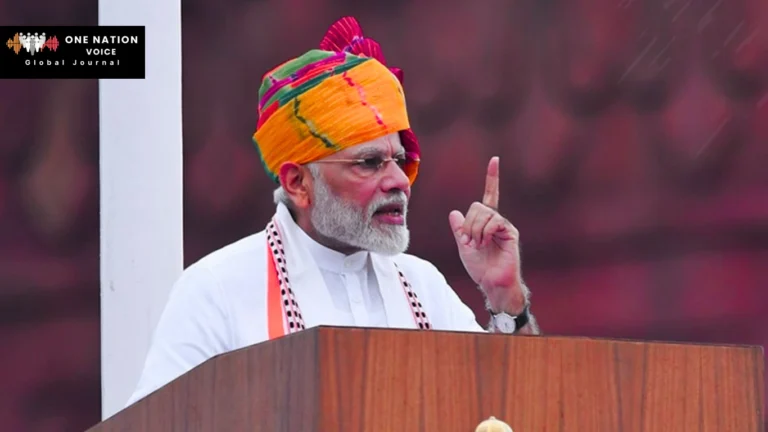Institutions, Elections, and Defence Contradictions in Modi’s India

Kapil Sibal, a senior advocate and Rajya Sabha MP, has once again caused a political storm. This time, he is going after the Election Commission (EC) and the Modi government for what he says is rigging the elections in Bihar. Sibal called the EC a “puppet” of the Modi government and criticized the latest alteration of the electoral record in Bihar, saying it is both unlawful and obviously prejudiced.
Sibal said that the Commission’s sudden decision to change electoral rolls in some areas, mainly those where opposition parties have a lot of support, is a clear breach of Article 324 of the Constitution and is a way to keep people from voting. “This isn’t simply tampering with the administration. This is political engineering dressed up as electoral procedure,” he stated at a press conference. He also said that making changes outside of the normal schedule sets a bad example for politicians who want to manipulate independent institutions for their own gain.
Opposition leaders are supporting Sibal, saying that the move is a planned effort to change the demography of voters in favour of the ruling Bharatiya Janata Party (BJP) before the next set of elections. The EC hasn’t yet given a full answer to these claims, although it has said that the change is within its constitutional powers. Sibal, on the other hand, says that legality must also include justice, which he says is clearly missing right now.
Rajnath Singh, the Minister of Defence, praised the effective use of the BrahMos supersonic cruise missile system during “Operation Sindoor,” a large live-fire military exercise that took place in India’s northeastern region. Singh said that the action showed how India’s defence manufacturing and tactical skills are getting better.
“Operation Sindoor has shown not just that we have better technology, but also that we can think forward strategically. The deployment of the BrahMos system, which was made in collaboration with Russia but is becoming more and more Indian, is a big step forward for India’s defence readiness,” Singh said at a press event. The Lucknow node of the Defence Industrial Corridor was where some of the BrahMos missiles were put together. This is one of the Modi government’s main projects to stimulate domestic manufacturing as part of the “Atmanirbhar Bharat” push.
India has also recently made progress in selling the BrahMos missile to countries like the Philippines. This contract is being called a big step forward for India’s defence export industry. Singh said that these exports will not only strengthen India’s diplomatic connections but also make India less reliant on foreign suppliers. He said, “We are charting a path of strategic autonomy from design to deployment.”
India’s democracy is under a lot of stress right now because important institutions like the judiciary and the Election Commission are being accused more of being politicized. Critics say that Prime Minister Narendra Modi’s government is quickly undermining institutional independence and that political expediency often trumps constitutional protections.
There are several worrying patterns that legal professionals and political observers have seen. These include the selective priority of cases in higher courts, the long waits for cases involving political corruption by governing party members, and the growing number of verdicts that seem to support the government’s objectives. Internationally, groups like Freedom House and V-Dem have recognized the trend and have lowered India’s democratic credentials in the past few years.
This deterioration isn’t just happening to the courts. People have said that organizations like the Enforcement Directorate (ED), the Central Bureau of Investigation (CBI), and even the Comptroller and Auditor General (CAG) have been used as weapons against opposition leaders. Kapil Sibal condemned the alteration of Bihar’s election roll, which is simply one more example of a rising series of actions that show a lack of neutrality in the system.
Observers believe that the most alarming thing about this politicization is how it makes civil society less active. Laws concerning sedition and terrorism are being used more against journalists, students, and activists who speak out. The boundary between governing and being partisan is getting less clear, which hurts the basic checks and balances that make a democracy work.
Just a few days after Operation Sindoor ended, the Modi government negotiated or announced several expensive defence deals with other countries. This has raised questions about its assertions that it can make its own defence equipment. During Prime Minister Modi’s trips to France, the US, and Russia, he signed billion-dollar deals for fighter jets, drones, and advanced surveillance equipment.
Rajnath Singh’s happy tone about India’s ability to make things at home in Operation Sindoor seems to be at odds with this international shopping binge. For example, even though BrahMos exports are being hailed as a big accomplishment, India has decided to buy more Rafale fighters from France and MQ-9 Reaper drones from the US. These are both expensive imports that show how India’s own capabilities are lacking.
Analysts say that even though India has made progress in local assembly and partial knowledge transfers, it still relies on foreign suppliers for essential parts and high-end systems. A retired Air Marshal, who asked to remain anonymous, observed, “Defence self-reliance is still more of a slogan than a fact.” “We’re building more things here, yes, but other people still own the intellectual property, the chips, and the engines.”
These discrepancies make us ask important questions: Is Atmanirbhar Bharat more about how things look than how they really are? Are defence exports being exaggerated as imports keep coming in at a high rate? It is getting harder for a government that values nationalism and sovereignty to ignore the difference between what it says at home and what it does abroad.












